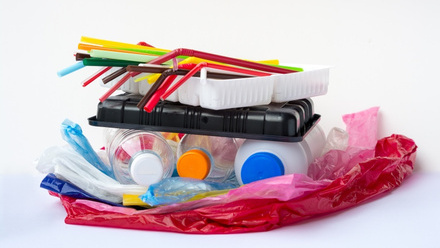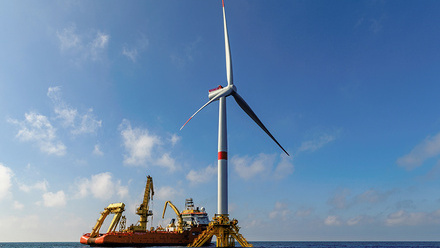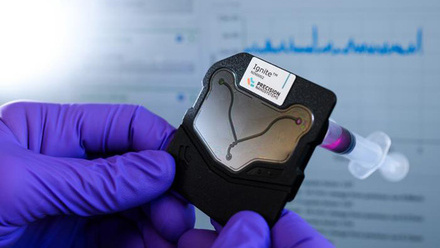Connecting the dots, DRS
Industry and government figures discussed the UK’s much debated Deposit Return Scheme and Extended Producer Responsibility legislation at a Westminster Forum event.

How can a well-designed circular economy for plastics contribute to a wider circular economy for all resources and waste flow? Asked Professor Peter Hopkinson, Co-Director of the Exeter Centre for the Circular Economy.
He opened a forum on ‘Waste in England: next steps for the Deposit Return Scheme (DRS) and Extended Producer Responsibility (EPR)’ with a question that encapsulated many of the key themes that emerged in the following conversations.
Various speakers noted the need for joined-up thinking and co-ordinated planning with regards to the wider markets and other elements of circular economy policy.
But the landscape is complex. Waste and recycling is a devolved responsibility in the UK across the constituent nations of England, Northern Ireland, Wales and Scotland.
At the time of going to press, the legislation for a DRS for drinks containers received enough votes to be passed in the UK House of Commons.
A DRS works by charging a small deposit to someone purchasing a drink, which is returned to them when the container is returned to a recycling collection point. The legislation applies to England and Northern Ireland, with the Scottish Government amending its existing legislation to launch simultaneously in October 2027.
Meanwhile, the Welsh Government announced it would withdraw from the UK-wide DRS last year. This is because it wants to pursue a DRS for all drinks containers, including those made of glass. In England, Northern Ireland and Scotland, glass is to be excluded, with the DRS applying to PET bottles, steel and aluminium cans only.
The UK Government position is that 'this is because including glass creates undue complexity for the drinks industry and it increases storage and handling costs for retailers. Glass containers are heavy and fragile, making them more difficult for consumers to return and receive the deposit they have paid, potentially forcing up the cost of their shopping.
'Moreover, glass is littered less. The Keep Britain Tidy litter composition analysis of 2020 presented that 55% of litter was from PET plastic and metal drinks containers, compared to just 4% from glass drinks containers'.
For the Welsh Government, 'The evidence on glass is clear'. In a statement issued last year, it noted 'over 50 successful international examples of DRS where the overwhelming majority include glass as standard...Excluding glass whilst all other materials are included therefore not only risks there not being a level playing field, which may result in producers changing material for less environmentally friendly and higher-carbon options, but also excludes what is currently the most sustainable potential option'.
The decision to not include glass 'also risks hampering the ability of the glass sector to transition and remain competitive, with high quality, source-separated material being crucial…to increasing recycled content against the legal requirements that will be in place in any event', points out the Welsh Government.
Glass drink containers are in scope of the UK’s Extended Producer Responsibility legislation for packaging (pEPR), whereby producers will be charged fees for the management of this packaging once it becomes waste from April this year.
Seeing the whole picture
Colin Church FIMMM, Chief Executive of the Institute of Materials, Minerals and Mining, spoke at the event about the big-picture constraints and opportunities in managing policy across four different administrations, when environmental policy is devolved, but trade is not.
He also emphasised the further layer of complexity added by the UK internal market post-Brexit, when designing policy for products that are traded globally.
Church noted the differing political priorities and social conversations of the four administrations, and his impression that the Scottish Government, the Welsh Government and the Northern Ireland Executive had not always felt 'there was openness and respect for and conversation of equals going on between the UK Government on the one hand and the devolved administrations on the other'. This limited co-operation.
To overcome the complex and multifaceted problems, he outlined focus areas to successfully coordinate across the local, national and global layers.
- Timelines – the need to match up different schemes and their internal workings with each other in a big picture of economic circularity.
- Communication – the need to engage with and communicate clearly to the general public, industry and producers, and to investors. He specifically highlighted issues around labelling in packaging, with multiple audiences and space constraints.
- Infrastructure – the need for infrastructure to meet policy ambitions around moving materials further up the waste hierarchy into prevention and reuse, which the National Infrastructure Commission’s analysis for England believes is currently insufficient.
- Reporting/data – the need to understand what’s happening on the ground in as near real time as possible. This point echoed other presentations on the need for high-quality data, as well as its cost.
- Skills/qualifications – the need to build pipelines for suitably qualified people to build, implement and manage these systems.
Many of these points recurred throughout the day, not least that '[there is a] disconnect of a high level of ambition on recycling and recycling rates, but a lack of thinking about how you deliver the infrastructure and how capital is allocated to this kind of infrastructure', as Tim Rotheray, Chief Sustainability Officer at Viridor, put it.
Church also stressed the need to refer to successful national schemes elsewhere, as part of a wider call to think about whole systems – including the wider network of trade and the ways plastic packaging, tax collections, the emissions trading scheme and single-use bans all work together and interface.
One of the questions posed to Church demonstrated the complexity of these wider conversations – 'How are DRS and pEPR going to change the dynamics of supply and demand, and what is the implication of that for what we import and what we export?'
In response, Church suggested that 'increasing the supply of good quality material will do nothing in itself to change the demand for that material here in the UK', and noted the need to encourage supply and demand to align over time.
He also put forward the view that, in terms of the balance between innovation and market forces, 'requiring simpler selection of materials on the market and then driving the innovation and how those are applied is probably a better solution [than] letting a million flowers bloom and [local government] dealing with the consequences'.
Martin Trigg-Knight, Director of Compliance Service at Clarity Environmental, also advocated for greater government commitment and investment in operating compliance schemes.
He focused primarily on pEPR and praised the Department for Environment, Food & Rural Affairs (Defra) for their engagement with producers, while also calling for more 'strategic thinking in terms of what materials actually we want to encourage producers to use' to prevent counter-functional incentive structures that limit impact and drain engagement from consumers and producers.
PackUK – the scheme administrator for pEPR – was formally launched this January. The government notes that 'PackUK will shift the cost of managing household packaging waste from taxpayers and local authorities to those businesses who use and supply the packaging.
'In turn, it will boost investment into local recycling services. Alongside Simpler Recycling in England and the DRS for drinks containers, the packaging reforms will stimulate an estimated £10mln investment in recycling services across the UK over the next 10 years, and, in England alone, support up to 21,000 new jobs.'
Pushing forward
Despite the difficulties and frustrations expressed throughout the event, there was a palpable sense of enthusiasm for increased policy support for recycling and urgency in implementation.
Hopkinson summed up the feeling, saying 'We just don’t want any more delay'. He was far from alone.
Baroness Natalie Bennett of Manor Castle opened the second session with a call to action: 'We have to stop treating the planet as a mine and a dumping ground', and reminded participants of the big picture in terms of the environmental impact of consumption on individuals, communities and the whole planet.
Her rallying call was echoed by Dr Geoff Mackey, Country Manager UK at Plastics Europe, and numerous other speakers, who voiced their frustrations with the delays, particularly with regards to implementing DRS and EPR.
Allison Ogden-Newton of Keep Britain Tidy emphasised the scale of the problem – the UK is the largest consumer of food and drink ‘on-the-go’ anywhere in Europe, and one of the leading consumers in the world, but there is an appetite for change from those same citizen consumers.
Ogden-Newton highlighted the impact of the delay in rolling out DRS from the targeted 2023 to the now-likely 2027 as 'a phenomenal amount of waste, a lost opportunity, wasted resources, time, money and the potential of our environment'.
In the four years between 2023 and 2027, she estimated that 32 billion drink containers will have been buried, burnt or littered in the UK.
She reminded attendees that more than 50 countries are currently running successful DRS programmes, ending on a note of optimism that the many challenges could be overcome.
The high-capture rates already achieved in Wales were noted by Dr Adam Read MBE FIMMM, Chief Sustainability Officer at Suez Recycling, along with the Irish experience and the results of DRS schemes in Scandinavia.
They demonstrate what can be achieved through well-designed systems when the right incentives are implemented at every level and there is citizen engagement.
Setting an example
Ciaran Foley, Chief Executive of Re-turn, spoke about his experience launching Ireland’s DRS for plastic drinks bottles and aluminium cans. Re-turn has revealed that more than 900 million plastic bottles and cans have been returned since the scheme launched last year.
He stressed that 'the main success of this scheme in Ireland really was down to government policy commitments and political alignments and lots of early consultation. There continues to be great communications between the department, Re-turn and all the key stakeholders'.
Foley continued, 'Probably one of the key successes of the scheme at the start was the prep that went into the logistics and the processing model, along with our partners, Limerick Polymers Production, so an extraordinary amount of trials were done.'
The Re-turn network of deposit return points now includes over 2,600 reverse vending machines (RVMs) with over 470 manual return points nationwide.
This encompasses four new RVMs at Cork Airport last November – two facilitate the return of deposits to passengers, and two accept plastic bottle and can deposits on behalf of Return for Children, a charity fundraising initiative supported by Re-turn.
Foley also noted the role of community involvement. 'The size of the deposit is not enough to get everybody motivated. So, the whole charity and community piece has been huge in Ireland and will continue to be.'
Foley closed with an acknowledgement of the border with Northern Ireland and highlighted the role of local authorities in making that operable. The value of the Irish example and the foundations for its success were clear in the concerns expressed in many of the other presentations.
Clyde Loakes, Councillor of Waltham Forest Council and Chair of North London Waste Authority, also highlighted the successes of schemes in Germany and the Netherlands in guiding the ambitions for more economic circularity in London.
Plastic fantastic?
Underpinning many conversations throughout the day was the value of plastic’s material properties and the need to maintain that value in the system.
Mackey argued that plastic should be considered as technology without which our society would not be the same, but one that is being significantly misused by single-use approaches. He spoke about the need to engage in more detail with value chains, with feed materials and with other industries that might make use of recycled plastics.
In doing so, he added to the contribution of Hopkinson, who had made a case for 'retaining the value-chain perspective' when trying to navigate the complexity of the problems faced, and Loakes, who noted the importance of reminding consumers 'that materials are not disposable, but do in fact have a value to them' to drive engagement with recycling schemes.
Julian Hunt, Vice President, Public Affairs and Communications at The Coca-Cola Company, also stressed the importance of the value chain in reducing reliance on virgin plastics. He noted that DRS works as a 'very well-established, extended producer responsibility system' for them and praised the example of Ireland’s DRS and, particularly, the 98% quality of the material generated by Ireland’s scheme.
The view from Defra
The final presentation came from Harshal Gore, Head of Strategy and External Relations for pEPR at Defra, and responded to many of the concerns raised.
He discussed the Labour government’s five key priorities for the department, including a roadmap to move Britain to a zero-waste economy. He noted the difficulties the new administration has faced in such a complex area, but stressed that the type of clearly articulated, joined-up thinking and planning that had been such a big topic at the event was a major priority.
He also emphasised that this was part of a wider commitment to 'protecting our environment and sustainability, reducing our raw materials and boosting economic growth as well'.
Gore briefly discussed the design of EPR, which he said is intended to incentivise and drive infrastructure investment and improve consistent labelling of packaging.
He also noted that the steering group for EPR delivery consists of producers, associations, local authorities and compliance schemes, as well as the four national governments, and that Defra plans to continue drawing on this expertise from across the value chain to improve connectivity and alignment.
Finally, he offered more detail on the regulatory requirements of EPR and, in response to questions, stressed that the department understood the burden of current demands on local authorities and were working to 'link up as many of these policies as possible, especially with Simpler Recycling and an EPR. And we will try to communicate as clearly as possible in terms of how some of these policies interconnect with each other in terms of specific kinds of funding'.
That information was welcomed by Baroness Bennett as chair of the session, who concluded the event with comments on the significance of the challenge and the role DRS and EPR might play as part of a systemic approach to sustainability.










